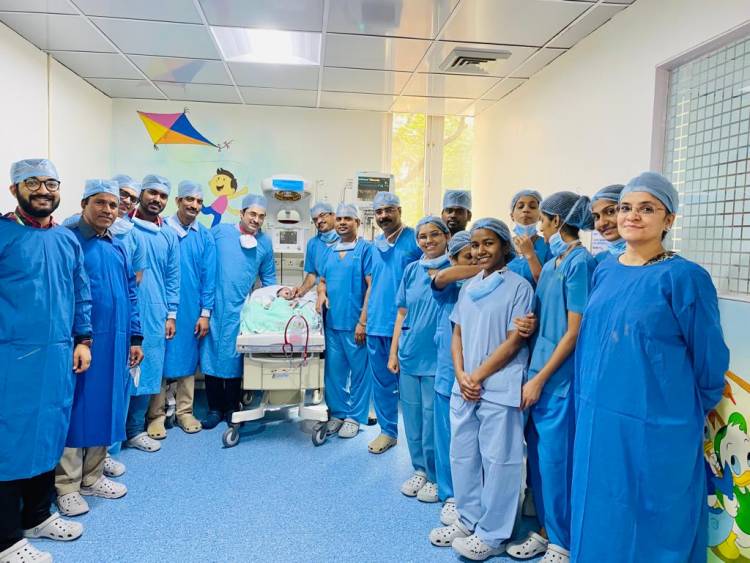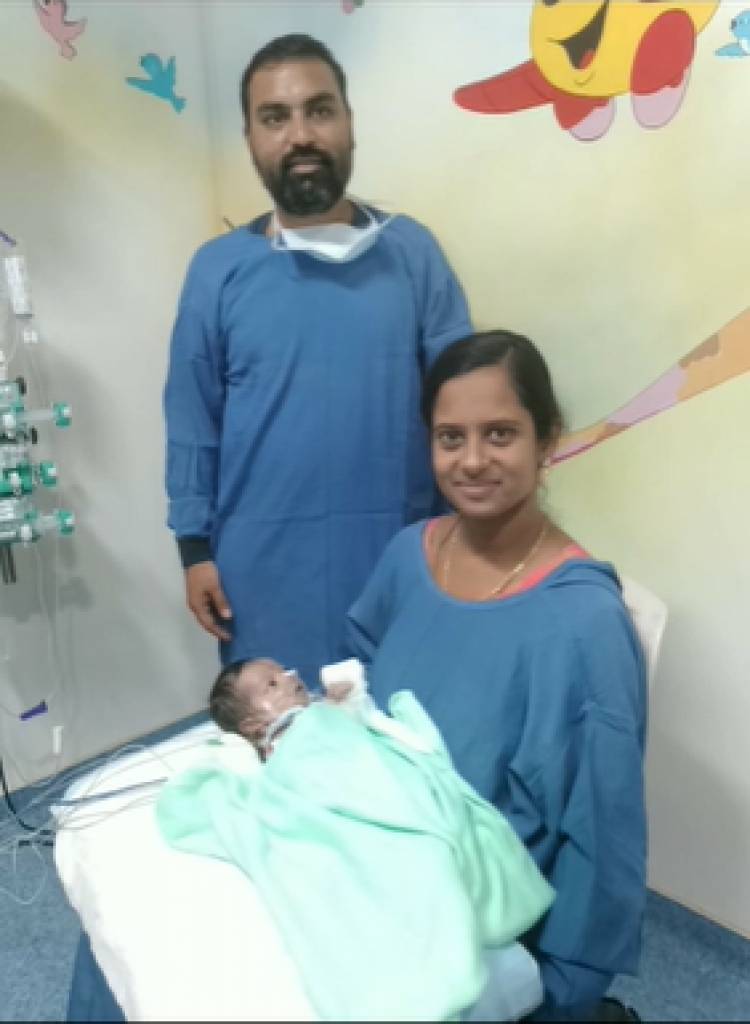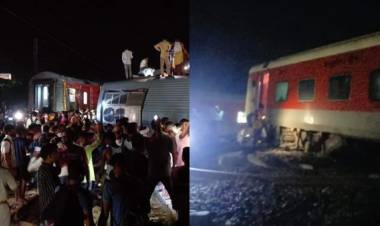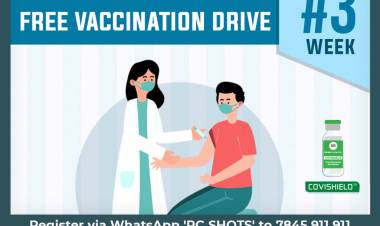A High-Risk open-heart surgery (Norwood Operation) conducted on One-hour-old newborn at Fortis Hospital
A High-Risk open-heart surgery (Norwood Operation) conducted on One-hour-old newborn at Fortis Hospital
~ This Condition Is Rare and reported in One in Ten thousand live Births; Surgery lasted for more than 6 hours ~
~ A High-Risk open-heart surgery (Norwood Operation) was conducted after the Fetal Echo showed a rare and critical congenital heart defect,5 Hypoplastic Left Heart Syndrome (HLHS) ~
Chennai: In an extremely rare case, a new-born baby girl, born with a complex congenital heart defect (Hypoplastic Left Heart Syndrome), underwent an open-heart surgery (Norwood operation) within an hour of her birth. The complex surgery was performed by Dr. Dhananjay Malankar, Consultant-Pediatric Cardiothoracic Surgeon, Fortis Mulund along with a team of pediatric cardiac specialist doctors which included Dr. Swati Garekar, Paediatric Cardiologist and Dr. Shyam Dhake and Dr Shivaji Mali, Pediatric cardiac anesthesiologist – Intensivist. The life-saving surgery lasted for more than six hours and had to be performed immediately as the fetal echo test revealed the congenital heart defect was fatal and an emergency surgical intervention was required to save the newborn.
Ghorpade family, residents of Solapur visited Fortis Mulund for delivery, after Mrs Priya Ghorpade’s fetal echo conducted in 36th week of pregnancy in Solapur revealed a rare heart defect in the unborn child. The fetal echocardiogram repeated at Fortis hospital, Mulund, confirmed the diagnosis of Hypoplastic Left Heart Syndrome (HLHS), a birth defect where the left side of the heart is poorly formed and affects the normal blood flow in the heart.
Usually in babies born with HLHS, a hole inside the heart between its two upper chambers (ASD) is present, which is essential for survival but in this particular case, which was a rare variation of HLHS, there was no ASD (atrial septum was intact) which made it impossible for the oxygen-rich blood from the lungs to enter the heart and then to the body. This increased the risk and complications and mandated a supra-urgent intervention for baby’s survival post delivery.
Once Mrs Ghorpade was examined, she was found to be in early labour and was admitted to the hospital. A planned C-section was performed the next day by Dr Atul Ganatra, Consultant- Obstetrician and Gynecologist. As soon as the baby was born, a screening echo was done, confirming the diagnosis of HLHS with intact atrial septum (absence of ASD). The baby was stabilized by Dr Rajen Doshi, Consultant Paediatrics and team of neonatology and immediately shifted to adjoining operation theater and within an hour was operated for Norwood operation.
Speaking about the complex surgery, Dr. Dhananjay Malankar, Consultant-Paediatric Cardiothoracic Surgeon, Fortis Hospital, Mulund said, “After understanding that the patient would deliver a baby who would require emergency intervention immediately after birth, we began to focus on a treatment plan that would help us save the life of the baby. A multidisciplinary team was formed and obstetrics and neonatology teams were involved for safe delivery and stabilisation of the baby prior to open heart surgery. In normal situations, when the baby is born, it must take the first breath after cord is clamped and blood flow to the lungs increases. However, in this case, as the baby had HLHS and intact atrial septum, there is no way for the oxygenated blood to flow through the body, which could increase the complications.”
The baby was shifted to the pediatric cardiac ICU after surgery. For the first four days, the surgeons had to keep the baby’s chest open as there was swelling of the heart. The doctors were finally able to remove ventilator support after 11 days and after gradual improvement the newborn was discharged in stable condition 21 days after surgery.
Dr Swati Garekar, Pediatric cardiologist added “The importance of fetal echo cannot be underestimated. It is done during the fourth or fifth month of pregnancy and helps prepare the parents mentally and logistically for the baby’s needs after birth. Fetal echo tests are critical in helping the healthcare team understand any congenital issues that a new or unborn baby might face during its birth. It allows the team of doctors to be ready with an action plan to be prepared for scenarios including life-saving surgery as is depicted in this case. Thankfully, in this situation, the parents understood the gravity of the situation and agreed to perform the surgery on their baby and save her life, despite the high risks involved. We are very happy with the clinical outcomes.”
Baby’s Mother- Mrs Priya expressed her gratitude, “I am happy about how the doctors approached my case as it was extremely critical. The team at Fortis was very supportive and helped me deliver safely while at the same time gave my newborn child a new life. I am happy that my baby will live a healthy life.”
After being discharged, the baby has been doing well and is back home in Solapur with her parents. The parents are taking good care of the baby although the child may require medicines (including blood thinning agent) and tests to be done so that the recovery process is smooth. In addition, the baby would have to undergo two more surgeries, one after six months and the second when the baby is 3-4 years, the risk associated with these two surgeries are low.





















